- October 20, 2020
- Posted by: p mulee
- Category:
“Fellow Kenyans, Ladies and gentlemen, Happy Mashujaa Day.
Let me first and foremost thank you, the Abagusii, for your warm reception. To celebrate the cultural diversity of Kenya and strengthen our nationhood, my administration made the decision to hold our national celebrations in the counties, on a rotational basis.
Today, Kisii joins the counties of; Nakuru, Nyeri, Machakos, Meru, Kakamega, Narok and Mombasa in having played host to a national celebration. In the near future, we shall announce where next year’s Madaraka Day will be hosted.
My Fellow Kenyans, We gather here today to celebrate 68 years of history and heroism as a country. We are well aware that the Abagusii Community is not short of heroes.
In the senior ranks of the Abagusii heroes, you will encounter Paramount Chief Angwenyi Kingoina Gichana, and Senior Chiefs Onsongo Angwenyi, Ooga Angwenyi, Zacharia Angwenyi Ooga, Musa Nyandusi and Assa Onyiego.
The makers of the Kenyan nation at Independence tapped into the abilities of your sons and daughters, heralding the birth of a strong and a vibrant Nation whose story cannot be complete without the mention of Lawrence Sagini, James Nyamweya and Zachary Onyonka.
Thereafter, following in the steps of the independence Abagusii heroes, many others heeded the call to serve in the public arena with some rising to high echelons of the public service as high standing Cabinet Ministers, formidable legislators and influential judicial figures. Amongst them being Hon. George Moseti Anyona, M.P., Simeon Nyachae, Justice Onyiego Nyarangi, just to mention a few. Once again, I thank you for your warm welcome.
Ladies and Gentlemen, on this day, in 1952, a State of Emergency was declared in Kenya by the British. They arrested over 200 of our leaders, including the Kapenguria Six; and started one of the darkest chapters in the history of our nation.
The atrocities visited upon thousands of our people during this emergency period can NEVER be described by any account of history. Even the secret ‘histories of the hanged’ in detention camps, cannot capture the pain of what was later called the ‘dirty war’ between the British and our liberation heroes.
Fathers were taken away from their families never to return; while those that did, limped back home, some having been castrated – and permanently robbed the joy of ever being a parent; mothers were maimed by marauding soldiers never to recover; and innocent children were forcedly conscripted into the war and turned against their own.
The darkness of this ‘dirty war’ and its imprint on the psyche of our Nation, will remain alive in our memories forever. However, the Founding Father of our Nation, Mzee Jomo Kenyatta advised us that for our country to heal and move forward, “…We must forgive; but we can NEVER forget”.
This advice to forgive and not to forget, was not a call to begrudge the perpetrators of the darkest part of our history. It was a call to remind our children about our past every Mashujaa 20 Day; and to do it recognizing that liberation is a process. The more we ponder our history in its truest form, the more liberated we become. But those who whitewash and dodge their history become victims of its ugly parts.
Our history is actually a torch that blazes a trail into the future as well. And that is why I invite you, today, to reflect with me on the heroes and the heroines that defined our nationhood.
Although we speak of October 1952 as a hallmark date in the history of our heroes, tales of heroism in Kenya date back to the 19th Century, well over 100 years ago. And this is testament to the fact that our national pride is not a recent affair. It is something engrained in our consciousness as a people.
For instance, Chief Waiyaki wa Hinga led a resistance movement of the Agikuyu against the leadership of the British administration towards the end of the 19th Century. His main complaint was that the colonizers were excessive in their demand for livestock and labour from his people. And during one of the disagreements, he is said to have burnt down a British establishment in his jurisdiction in 1890.
Two years later, in 1892, Waiyaki wa Hinga was arrested and buried alive at Manyani Maximum Prison in Taita Taveta. He died a hero. And today, I cannot be more proud than I was last week, when in the same venue in Manyani, I introduced the future heroes of our nation. This is a group of 800 young men
and women engaged in ground-breaking innovations for the future of our country.
But not all our 19th Century heroes were men. A Giriama widow by the name of Mekatilili wa Menza distinguished herself as one of the foremost warriors of her time. Born in 1840, she led the Giriama Resistance against the British Empire between 1912 and 1915. Her grievance against the British administration was forced Giriama labour that undignified her people.
She was arrested twice and put in colonial maximum prisons. And in both instances, she escaped. The first escape was actually from here in Kisii, where after escaping, she walked for over 800 kilometers back home.
She made her second escape from Kismayu in Somalia back to Kilifi to continue leading the Giriama Resistance. Such spirit of resilience and constant ‘come-backs’ is what we have banked in our historical records as heroism.
A new generation of liberation leaders, inspired by these 19th Century heroes, emerged from the 1920s. They included among others; Jomo Kenyatta, Jaramogi Oginga Odinga, Harry Thuku, Achieng Oneko, Daniel arap Moi, Masinde Muliro and Paul Ngei, to name a few.
This generation was more enlightened in Western tactics and begun to use pen and paper to advance the course of the African people. This is the generation that laid the foundation stone for our modern nation-state. And that is why we call them the founding fathers of this nation.
In the late 1940s, a new generation who had fought side by side with the British soldiers during the Second World War, emerged. This generation was heroic on many accounts.
They fought the Mau Mau war against the British Empire and won. And thereafter, together with the Founding Fathers they negotiated and drafted our constituting instruments for the birth of a new nation-state; and fundamentally, they started the journey of founding our nationhood from scratch.
But what enduring lessons can we highlight, as a nation, from the examples of these ordinary men and women who became our heroes? What must we teach our children every Mashujaa Day from the acts of these heroes?
These liberation heroes were people who sacrificed themselves for an ideal bigger than themselves.
These heroes, some of them buried in unmarked graves, understood that no
weapon is more lethal than the will of a free people. They sacrificed for this high ideal, negotiated when they had to, but vowed never to surrender. Their resolve remained unbroken and unbowed.
Some historians have argued that these heroes were extraordinary people. But nothing can be further from the truth. These veterans were ordinary people who became extra-ordinary because of the choices they made.
They did not start out as heroes who did big things; their heroism was only revealed as they stubbornly confronted obstacles that stood in their path to freedom. They only became heroes moment by moment as the liberation of our country from the shackles of the coloniser unfolded.
Fellow Kenyans, you may ask why I just said that creating our nation-hood is a journey started by our Founding Fathers, but one that is yet to be completed. I say so because nationhood is not an event; it is a process.
When our Founding Fathers emerged from the liberation war with fresh wounds, bloodied faces and years of incarceration, they had only one desire.
They had vanquished the enemy, alright, but the task of bringing together 42 nations into a single nation-state, was still daunting
Constitutional changes
They knew that this would be a journey. They knew that summoning the consciousness of 42 nations to a singular purpose under the nation-state would take constant negotiations and re-negotiation. And borrowing from their own historical experiences, this process of constantly reviewing our nationhood would only happen through the unremitting search for a constitutional consensus.
This position was strongly advocated by another group of our heroes known as the ‘constitutionalists’. Apart from being the architects of our new state and the engineers of our new economic order, they pushed for the practice of constantly building a constitutional consensus.
To them, constitution making was not a rigid end-point. It was a constantly moving target that required continuous consensus. More so because they saw constitution making as being a process first, and then an act after. While the act of constitution making is an end-state in itself, the process is a constant negotiation and re-negotiation of our nationhood.
Guided by this philosophy of constitutional consensus, these heroes went through as many as four constitutions before landing on a workable consensus. And their mantra in this search was best captured by former Vice-President Joseph Murumbi, when he said that: “…there is nothing wrong with Kenya that cannot be fixed by what is right with Kenya”.
If the Littleton Constitution of 1954 was wrong, it was made right by the Lennox Boyd Constitution of 1958. When this constitution outlived its consensus, the Ian McLeod Constitution of 1960, kicked in. And the search for a common ground continued until the independence constitution was adopted. But even then, this constitution was adopted as a cease-fire document to facilitate independence.
After independence, the Lancaster Consensus was replaced by a new consensus and the cycle of constantly negotiating our nationhood continued. When I cautioned against constitutional rigidity in my Madaraka Day address this year, this is exactly what I meant.
Our Founding Fathers and constitutional heroes did not intend our constitutional order to enslave us. They constructed it to serve us. And when it ceased to serve us, we are meant to borrow from the example of our Founding Fathers and rethink it. More so if the National Question of the day requires a constitutional settlement.
Fellow Kenyans, the country is staring at a constitutional moment. And the
National Question goes back to the advent of our multi-party
system.
For indeed, it was after the re-introduction of political pluralism in 1992 that negative politics begun to dominate our national arena. The question at hand and one requiring a constitutional consensus is therefore this: How do we resolve the winner-take-all situation within a context of competitive politics as required by democratic practice? And how do we ensure we fulfill our democratic credentials without reaping apart the diversity of our nation-state? This question of “us” versus “them” must come to an end.
And as we exercise our democratic rights, it must never again be at the expense of our diversity. The cardinal principle must always be our unity in diversity. Yes, the 2010 Constitution gave us some remedies, but did it
resolve or entrench the zero-sum game, in which the winner
takes it all and the loser goes home with nothing?
Are we still in the zero-sum constitutional dispensation that created conflict since the advent of multi-party politics in 1992? And how do we expect to resolve this problem using elections instead of constitutional change?
It would, indeed, be a tragedy if, come subsequent elections, we will not have resolved this dilemma. And that is why I urge the country to ponder a constitutional consensus around a threepronged National Question.
On the one part, the Question is political inclusion. Instead of a zero-sum constitutional equation, can we adopt a positive-sum equation? Can we adopt a constitutional arrangement that takes care of our diversity as a people?
And on this, we should not give my suggestion the parochial interpretation of creating positions for individuals. I am only urging for a constitutional consensus that accommodates all communities in an election. A consensus that makes it possible for any Kenyan to lead this country, working hand in hand with his or her brothers and sisters from across the Nation.
The second part of the National Question at hand, is about equity in the distribution of opportunities and resources. Our political practice has been such that, resources and opportunity go to those occupying positions of power. And that is why elections are so divisive and emotive.
But it is possible for us to entrench the principle of equity in distribution of resources and opportunities in the Constitution. This way, the Constitution will guarantee that no one is excluded.
The third part of the National Question speaks to the contestations and violence every electoral cycle. One year before every election, the economy shuts down as it anticipates the turns and twists of the election.
And one year after the election, the economy is still on a go-slow as markets wrap themselves around the emerging political constellations. This means that in every electoral cycle of five years, two years are wasted exclusively attending to electoral matters.
Fellow Kenyans, the quest to liberate our land was also fueled by the desire to drive hunger, ignorance, disease and unemployment from our
midst. Unless the economy is sustainably expanding to accommodate the youths graduating every year, then we are robbing our children their future. Therefore, as part of the National Question, we are called to create an environment where enterprise can thrive by continuously attracting capital into the country. Premature campaigns and endless electioneering creating anxiety, akin to what we are witnessing creeping into our Nation today.
Truly, this is not what the constitutionalists at independence wanted for us. And if we do not change it now, when we have a constitutional moment, this problem will plague our country for years on end. My invitation to the country, therefore, is to have an honest conversation with itself on this. And we MUST not shy away from taking BOLD decisions the way our Founding Fathers did.
Diaspora
Ladies and Gentlemen, We cannot talk about our independence heroes without
mentioning the diaspora fraternity that supported our liberation struggle, yet they were not Kenyans. Former Prime Minister of India, the late Jawaharial Nehru was one of the very early supporters of our struggle.
When the Kapenguria Six were put on trial, he provided part of the legal team that defended them. His rationale was that the liberation struggle anywhere in the colonies was a struggle to liberate the human spirit first; and to gain self-rule second.
The other diaspora heroes of our liberation included the leadership of the Pan-Africanist movement. Indeed, this week marks the 75th year since the 5th Pan-African Conference was held in Manchester between the 16th to the 21st of October, 1945.
In attendance were; W. E. B. Du Bois who presided over the sessions, George Padmore, Kwame Nkrumah, Ras Makonen, Wallace Johnson, C.L.R. James and Jomo Kenyatta.
This Conference pledged to support the liberation movement in Kenya. And indeed, they stayed the course. The spirit of Pan-African imagination, brotherhood without borders and the craving for an African Renaissance, is one we need to recapture as we celebrate our diaspora heroes today.
But we must also remember that our Founding Fathers were Pan-Africanists. And to uphold their vision, we must support the African dream of working together, living together and building the unity of the African continent.
Kenya’s youthful heroes
Fellow Kenyans, we must also celebrate today, our young people. They are our
heroes and yet we so often forget it. As one statesman retorted: “…We do not own this country; we have just borrowed it from our children” as represented by our young people. And if history is not just a path to the past, but a trail into the future, then a spotlight must be shone on our young people this Mashujaa Day.
Did you know that the ‘Makers of this Nation’ were dominated by young people who worked closely with a few elder statesmen? Did you know that the Independence Cabinet and the new administration were also dominated by young people? And did you know that the first draft of Sessional Paper Number 10 of 1965, which became the blue print vision of our economy, was written by a 29-year old technocrat known as Japheth Shamalla?
These young men were not extra-ordinary. They became our independence heroes because they made more opportunities out of the little that they had been given. Instead of focusing on the hardships of building a new nation from the ground up, they focused on the possibilities. The independence war had taught them that energy flows where attention goes. They had learnt from the struggle that what you focus on grows and the words you utter become flesh.
Our young liberators became heroes because they focused on what could be done; and not the obstacles standing in their way. Their attention was on the positive and the words they uttered about their country, were full of optimism. This attitude of positive energy made most of them heroes because they dared do the impossible.
And here is a lesson to our young people today. As I said in my Madaraka Day address, Kenya is still a work in progress. It has its good and its bad; its ugly and its sweet.
If our attention goes to the bad and the ugly, all energy will flow to the negative and we will become a nation of angry and disillusioned people. But the young people who will embrace the positive and the possible, will emerge as heroes and ‘makers of things’.
A good starting point for our young people is to look for a problem and solve it. If you solve a problem, heroism and success will naturally follow you. And I have three recent examples to illustrate this here in Kenya.
The First one, last week on Friday, I invited my Cabinet and the entire Nation as I unveiled a series of transformative programmes and projects undertaken by our young people. The team of over 800 young men and women, drawn from across the Republic, have undertaken seminal programmes that include; the National Wide Airborne Geophysical Survey, the Geospatial
Project, the Cyber Project, Drones and the National Security Industrial Project.
These young innovators not only delivered high quality of work, they also did so at a fraction of the set cost. For example, in respect to the mapping of our national resources under the National Airborne Geophysical Survey Project, a private firm had quoted to do it at a cost of Sh30 billion, but our team of young professionals have programmed to do the job at a cost of Sh4 billion. Currently, this project is at 70% completion.
With the completion of this seminal project, the comprehensive geology of our country is now known and that information will be used to chart a path to prosperity and self-sufficiency for host communities and the wider nation. Our young people have similarly completed the mapping of our entire country to the sub-location level, an endeavor that was last undertaken in 1972.
Thanks to their efforts, we now have an annotated inventory of all public utilities across the country, all public infrastructure, all schools both public or private, all hospitals and all other public utilities, and a description of all physical developments all the way to individual homes.
Because of this, the next frontier of e-Commerce within our nation will be powered by the National Address System that will be rolled out across our nation. The e-commerce trade channel will be serviced with drones made by Kenyans for Kenyans.
Student innovators
The Second one is about two engineering students from Jomo Kenyatta University of Agriculture and Technology (JKUAT). The two, Michael Mwaisakenyi and Ken Gicira, created an automated weeding robot to help farmers eliminate the need for herbicides in their crops. The robot uses artificial intelligence to discriminate between weeds and crops. The innovation has a robotic arm for weeding in-between the crop row and a plough-like weeding tool, that is dragged by the robot as it passes in between the rows of crops to remove inter-row weeds.
This innovation emerged winner of the 2020 Imagine Cup, beating teams from across nine European, Middle Eastern and African countries. The innovation is scheduled for presentation at the Imagine World Championship in Seattle, Washington State.
Added to the many innovations from our young people during the Covid-19 Crisis, the Third heroic example I wish to mention, is that of Roy Allela, holder of a Bachelor’s degree in Microprocessor Technology and Instrumentation, from the University of Nairobi.
This 25-year old engineer had a strong urge to communicate with his 6-year old deaf niece. He had a problem to solve and he did not shy away from it. After many experiments, he finally managed to create a pair of smart gloves that helped him communicate with his deaf niece. These gloves have flex
sensors that help the deaf wearer, communicate and vocalize messages to a mobile phone through Bluetooth.
These gloves are made to be customized to any client’s specifications and have 93% accuracy of vocalizing messages. By solving the problem of his 6-year old niece, Roy Allela has created a solution that will help thousands of deaf people globally. This innovation has won the Hardware Trailblazer
Award by the American Society of Mechanical Engineers. Roy was also the second runner-up for the Royal Academy of Engineering Leaders in Innovation.
With the examples of the National Security Programme, weeding robot and the smart glove, it is clear that Kenya has a pool of talented and gifted young people. Where these transformative innovations came from, there are many more.
All we need to do is look. And if our national attention moves to the search for solutions, our natural energy will flow to a positive place.
Fellow Kenyans, allow me to end my address today by recording two Mashujaa lessons from our Founding Fathers to our young people. And I am compelled to do this because, as one statesman said: “…If it was not for the elders correcting the mistakes of the young, there would be no state”. My intention
today is not to correct, but to point our young people in a direction that will make them heroes in our times.
The first lesson from our liberation heroes is that: “…if it’s got to be; it’s got to be me”. That is, if anything will happen, it all depends on me. If change will happen, do not expect your neighbours to be the ones to cause it. You are the one to do it.
Answer the summons of change and be the driver of it. And all you need to do is to ‘show up’ at the arena.
As Theodore Roosevelt once said, “the man who matters is not the one who stands by the wayside criticizing, saying how things could have been done better. The man who matters is the one in the arena. The man whose …face is marred by dust and sweat and blood; the man who errs, and comes short again and again… knowing that if he fails, at least he failed trying”.
My call to our young people, therefore, is to get off the wayside of pessimism and get into the arena. If the young veterans of war had not heeded the summons of change, we would not be having independence today.
The second lesson to our young people from the liberation heroes is this: be prepared to pay the price. And I am using the word price to mean what you pay in exchange for something.
The price of our liberation was high, but there was no doubt that our Founding Fathers were prepared to pay for it. Some of them paid the price with their own lives. But what we got in exchange is far greater than what we could imagine.
Borrowing from the young veterans of our liberation, my appeal to our young people is not to be afraid of paying the price. If you have a dream, pay the price and the dream will come to you; if you have a challenge, pay the price and it will resolve itself.
And in saying this, I am inspired by the words of the Rev. Frederick L. Donaldson, in a sermon he gave almost 100 years ago. In this sermon, he dreaded an emerging culture of not ‘paying the price’. A culture characterized by “… wealth without work; pleasure without conscience; knowledge without character; commerce without morality; science without humanity; worship without sacrifice and politics without principle”.
If, indeed, our Founding Fathers were young people when they created Kenya, our young people can found a new Kenya in our lifetime. They have what it takes to create a new wave of heroism if they get on the arena, prepared to pay the price of
dreaming.
On my part as your President, I will continue to accord our youth every opportunity to serve in the public service. In the last crop of Chief Administrative Secretaries I appointed; the vast majority of the appointees were in their 20s and 30s, a continuation of my promise to the youth that my
government will empower them and give them a greater voice.
I also take this opportunity to commend all the young people that are serving their nation at both the national and county levels. Our national response to the coronavirus pandemic was fortified by their immense contributions.
I thank our valiant critical and essential services providers for
keeping Kenya going. I also thank our healthcare workers for their dedication and selflessness in the midst of the greatest threat to public health in a century; our law-enforcement officers who are keeping Kenya
safe and orderly.
Fellow Kenyans, what then is our lesson from our independence heroes this
Mashujaa Day? What our heroes taught us is that, it is very easy to lose a country.
Covid-19 heroes
And as your 4th President, I need to remind you that, we will have a 5th, 6th and even 10th President. But we have only one Kenya. This is all we have and we must protect it at all cost. I cannot conclude this address without honouring our Covid-19 heroes. In particular, I want to give special mention to our departed health workers such as; Dr. Doreen Lugaliki of Nairobi South Hospital, Clifford Mburia of Kitengela Medical Centre, Moses Ringera of the University of Nairobi Health Services and Marian Awuor of Rachuonyo Hospital, among others. Their memory will forever be engraved in our hearts.
These brave souls paid the ultimate price. And like our Founding Fathers, they teach us that heroes are ordinary people who are made extra-ordinary by unusual circumstances.
Similarly, and given the fear-ridden circumstances our Covid heroes found themselves in, they teach us that heroism is not the absence of fear; it is the conquest of fear.
On this day, we are all called to embrace the challenges of our times with courage and fortitude, and to seize the constitutional moment to redefine our future and our shared prosperity. And in doing so, we will live to the call of our founding fathers when they secured our independence.
Thank you. God bless you all, God bless Kenya.”


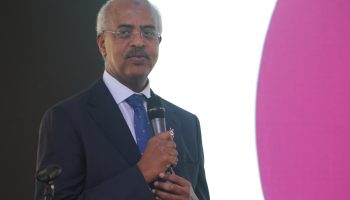

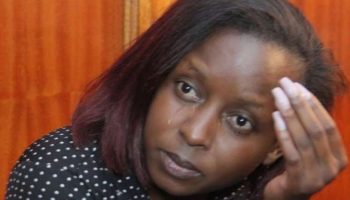

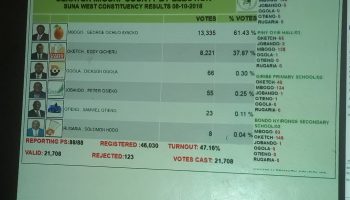
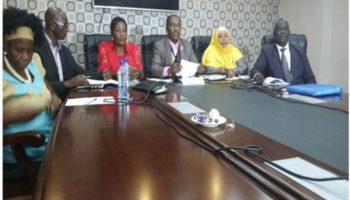
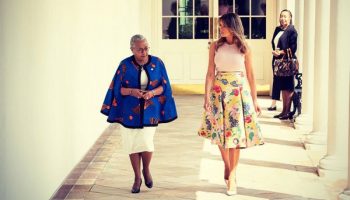



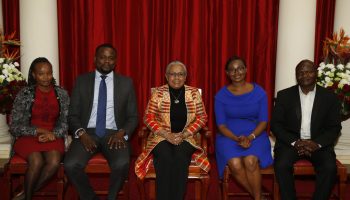
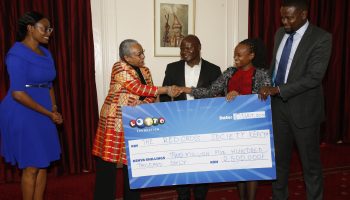

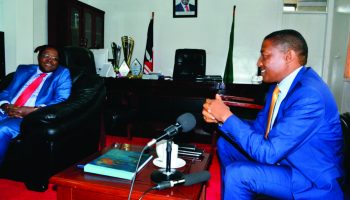

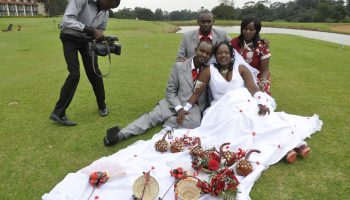
I’m very pleased to find this website. I
want to to thank you for your time just for this fantastic read!!
I definitely loved every part of it and i also have you saved to fav to check out new stuff in your website.
I like the helpful information you provide to your articles.
I will bookmark your weblog and check once more here frequently.
I’m relatively sure I’ll be informed plenty of new stuff proper
right here! Best of luck for the next!
hey there and thank you for your information – I have definitely picked up
anything new from right here. I did however expertise
several technical points using this website, as I
experienced to reload the site a lot of times previous to
I could get it to load properly. I had been wondering
if your hosting is OK? Not that I’m complaining, but slow loading instances times will very
frequently affect your placement in google and can damage your
high-quality score if ads and marketing with Adwords.
Anyway I’m adding this RSS to my e-mail and could look out
for much more of your respective interesting content.
Make sure you update this again soon.
I like this website it’s a master piece!
Glad I discovered this ohttps://69v.topn google.Raise blog range